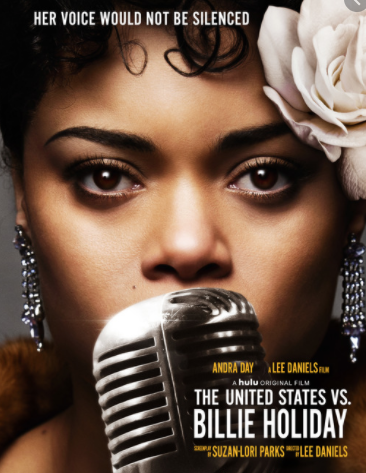The challenge with historical biopics, especially ones that deal with how terrible the hegemony was in relation to race, is that they are all very important stories to be shared, but sometimes, they are not very good movies.

The United States vs. Billie Holiday (dir Lee Daniels) falls into this category. The film is based on the book Chasing the Scream: The First and Last Days of the War on Drugs by Johann Hari. It details the story of Billie Holiday, (Andra Day, who did most of the heavy lifting in this film), the supremely talented Jazz singer in the 1940s who was persecuted by Harry Anslinger, (Garrett Hedlund) who might be the most influential person you have never of heard of.

The film revolves around the song Strange Fruit which Holiday would make famous; this haunting song detailed the terror Black American communities faced in the rural south with over 4000 publicly murdered between 1877 to 1950.

Holiday would play the song in front of white audiences, she would do it as her last song, just her, no band, with a tight spotlight on her face. She would finish the song, the lights would go out and she would leave the stage. When the lights would come back on, she was gone, no encore, no nothing. Her request would be to let the song hang there. And hang there it did.

It angered Anslinger to no end. He was a straight-up racist and terrible person. He thought the song would create civil unrest, read people of colour wanting to be treated like human beings. He set the resources of the United States government to make sure Holiday never sung the song.

Holiday was a drug addict. She was no angel, but at the same time Anslinger was doing everything he could to lock her up, he was helping Judy Garland avoid punishment for her drug problems. The galling hypocrisy is plain to see and this all makes it feel like we haven’t moved too far forward as a culture. Black Lives Matter is bigger than ever with the videotaped injustices and murders caused by Police and Federal Officials to this day.
Anslinger was the head of prohibition which resulted in hundreds of deaths and people killing each other over alcohol. Could you imagine a turf war where LiquorKing fought Super Liquor? When Anslinger saw the writing on the wall he switched his attention to drugs. Give the man his credit, he knew how to create a problem that he could solve and profit from. He is reason for the clusterf*ck that would become the War on Drugs, which to this day, just as prohibition, didn’t solve any problems, just created systemic and generational ones.

Most of what I just wrote wasn’t in the film. I probably shouldn’t have been surprised when the coda rolled and there were gasps from the audience of how bad it was in the US at the time and how bad it still is. Ignorance is bliss and a tool of the wicked to maintain their power.
There is an interesting story in this film somewhere but it required a firmer hand than what Daniels presented. The run time was bloated and could have been cut 20 minutes shorter. Unless the film was meant to feel indulgent like Holiday’s drug addiction, then it should have been much longer like Wolf of Wall Street, playing up the excesses.
This would make a great documentary and if that came out I would go and see that.

By Luke McMeeken-Ruscoe
20 April 2021

